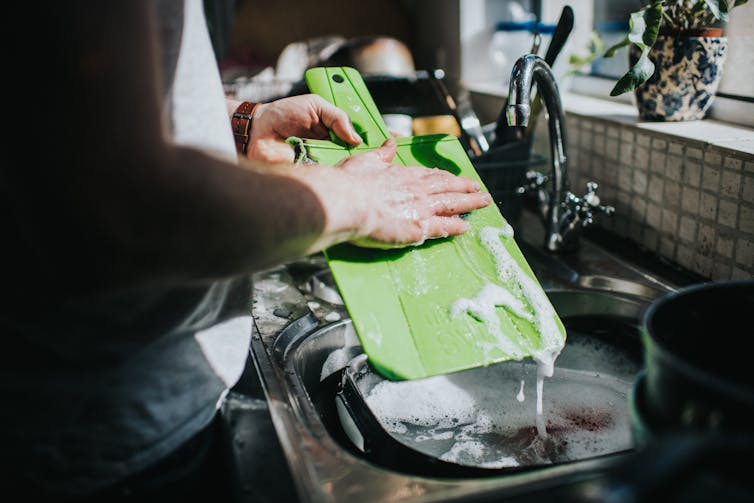This article is republished from The conversation under Creative Commons License.
As flowers bloom and temperatures rise, many are eager to get back outside. But while the sun may be shining, there is a dark side that can make outdoor living not so wonderful.
Bands of germs lurk in the forests, in the soil, in the water and in the food, ready to rain down their summer parade.
I am a microbiology professor at the Indiana University School of Medicine, where I study and teach about infectious diseases. Here are some things to keep in mind to help you and your loved ones stay disease-free while enjoying summer activities.
Germs in the backyard
There is nothing like the smell of a good barbecue and fresh delicacies from your own garden. To ensure that people leave your party with only good memories, be aware of the germs commonly associated with poisoned foodwhich can cause diarrhea, cramps, nausea, vomiting and fever.
Meats, including fish and poultry, often harbor harmful bacteria such as Salmonella, E.coli, either listeria. Raw meat can contaminate anything it touches, so be sure to wash your hands and disinfect surfaces and utensils. To avoid cross contamination, do not store raw meat near prepared foods. Meat products should be cooked until suitable temperatures to ensure that harmful germs are destroyed before consumption.
In addition to bacteria, a parasite called Toxoplasma gondii can cause acute food poisoning. toxoplasma Parasites are eliminated microscopically. oocysts in the feces of infected cats. Oocysts persist in the environment for a year or more, and other animals, including people, may inadvertently ingest them.
When infected, toxoplasma shapes tissue cysts in the meat of edible animals: another reason to cook meats well. pregnant people special care must be taken to avoid toxoplasmasince the parasite can cross the placenta and cause spontaneous abortions or birth defects.
To avoid contracting toxoplasmosis through oocysts, people should wear gloves while gardening, wash fruits and vegetables, and make sure the litter box is free of cat droppings and covered when not in use.
Germs in water
Recreational aquatic facilities, such as swimming pools, water parks, and fountains, are a great way to beat the summer heat. He chlorine smell It is a good sign that the water is being treated to kill many types of germs.
Unfortunately, some germs can remain infectious in bleach for several minutes or days, long enough to spread from one person to another. These include viruses such as norovirusbacteria like E.coliand parasites like cryptosporidium and giardiana.

